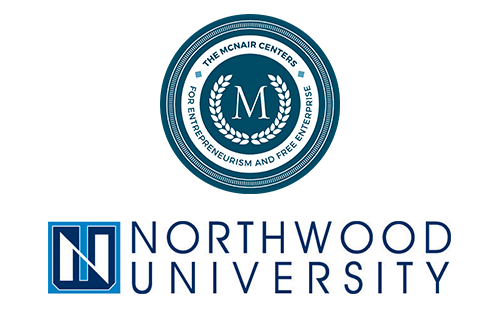Economist discusses modern-day parallels with American Revolutionary War
I was born March 6, 1958, in the city of Detroit, to a Polish-American mother and Irish American father. I was welcomed into a close-knit middle class Catholic household of nine children, of which I was the middle child. We grew up with pride in America, our theology and ancestral roots, and with great respect for people of all races and creeds. My parents constantly stressed the United States’ greatest strengths were her system of limited government and the melting pot of people that was America. If I were to summarize how my parents raised us, it would be “parenting by Leo Burnett.” Burnett was the well-known advertising executive who once famously said, “Reach for the stars, you may not get one, but at least you will not end up with a handful of mud.” Because of my parents, my siblings and I truly believed with hard work and a strong moral compass we could accomplish just about anything.
Even though I have not lived in Detroit since 1976, it was a wonderful place to grow up – a place that has, and always will have, a warm spot in my heart. I often return to the city and when I do, I make excuses to drive by the historical monument of a horse-mounted General Thaddeus Kosciuszko, a Polish war hero who bravely led colonial troops for General George Washington’s Continental Army during the American Revolution. Kosciuszko’s leadership was of great help in defeating the British, winning independence and establishing these United States of America.
Three of my four grandparents passed away before I was born, yet I was extremely blessed to know my grandfather on my mother’s side, Joseph Glosek. My mother’s father was born in 1893 in the town of Ostroleka, Poland, roughly an hour north and east of the Polish capital, Warsaw. His parents sent him to the United States in 1906 at the age of 13, with not much more than the clothes on his back, to escape conscription into the Russian Army. He passed the Statue of Liberty and entered the United States through Ellis Island. He followed the advice of New York Tribune Editor Horace Greeley (who is credited with coining the phrase “Go West young man” in 1865) and settled in the Motor City.
My grandfather loved America and worked his way up to the position of foreman in a Chrysler plant in Detroit before his retirement. He had always hoped to bring other family members to the United States but was never able to do so. By the time his finances afforded him the opportunity, the Communist Revolution had taken place in Russia, World Wars I and II had been fought, the Yalta Agreement had been reached and the Iron Curtain had descended across central and eastern Europe. Unfortunately, Joseph Glosek died in 1976, 13 years too soon to witness the collapse of the Berlin Wall and the fall of Communism in much of central and eastern Europe. However, I was able to somewhat fulfill a dream of his to return to his country of birth, when I traveled with some economist friends to Poland in the fall of 1989 and met my grandfather’s niece (my mother’s cousin) and her husband in a restaurant in Warsaw. We enjoyed a beautiful dinner with my friends, shared hugs and tears and knew that the freedom my grandfather had enjoyed most of his life was now beginning to reemerge in Poland. As we returned to Frankfurt, West Germany to come home to the United States, our train traveled through then-Communist East Germany. It was just after American Thanksgiving on the train from Warsaw to Frankfurt at a stop in East Germany that my friends and I were notified that the figurative (and soon to be literal) collapse of the Berlin Wall had begun.
In my almost 33 years since meeting my Polish relatives in Warsaw and reflecting on my life as a person privileged to have been born in America, I have traveled by the monument to General Kosciuszko in downtown Detroit numerous times. I often wonder what may have happened to the American Revolution had a great general like Thaddeus Kosciuszko not been sympathetic to the American cause and voluntarily left Poland to fight for the Continental Army. What if he had not sailed for America in the summer of 1776 or French supporters had not provided money and armaments to General Washington and the Army established by the second Continental Congress? What if Kosciuszko had not applied to and been accepted into the Continental Army in August of 1776? Kosciuszko was not only a brilliant military general, but he was an engineer and early on, at the request of general George Washington helped build the fortifications at Fort Billingsport, Paulsboro, New Jersey. This fortification provided protection of the banks on the Delaware River and prevented numerous British advances up the river to the colonial stronghold of Philadelphia. Kosciuszko also fortified the U.S. Military Academy at West Point. Kosciuszko, like many other foreign generals, played a vital role in the American Revolution and the establishment of the United States of America.
The voice of liberty was answered by heroes foreign and domestic in this country in 1776, at the Berlin Wall in 1989 and is again crying out today in Ukraine. May all who can, answer today’s call and come to the aid of those seeking freedom in Ukraine and Russia. May God’s divine wisdom and intervention guide the leaders of the United States and NATO to help bring an end to Russian tyranny in Ukraine and illuminate the light of liberty once again.
Dr. Timothy G. Nash is director of the McNair Center for the Advancement of Free Enterprise and Entrepreneurship at Northwood University.
